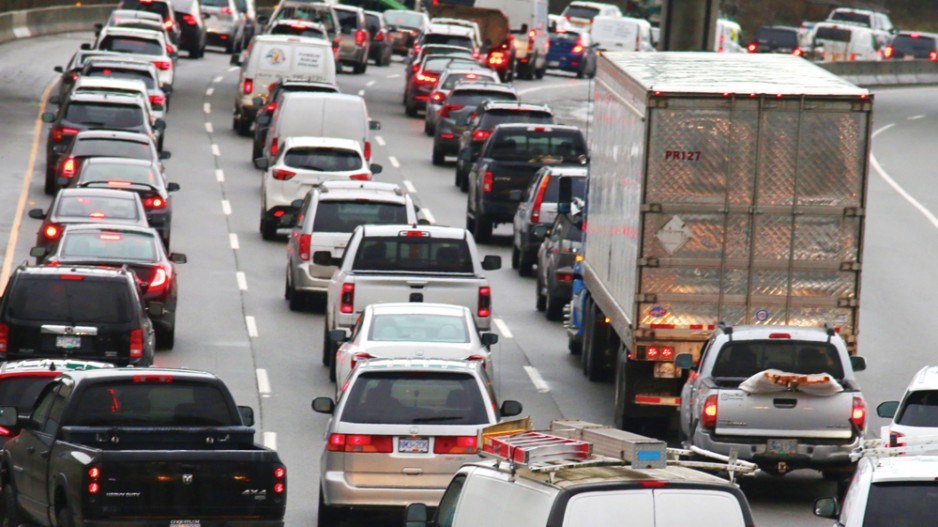In May 2019, Research Co. and Glacier Media developed what was meant to be an annual survey focusing on . We focused primarily on the differences in the way drivers and public transit users perceived their journeys from home to the workplace.
There was no point in conducting the survey in 2020, as COVID-19 kept most of us inside our homes. This month, with no pandemic restrictions in place and renewed discussions about the future of cities, we chose to gauge the situation again.
There is a little bit of movement on how we feel about the weekday commute. About a quarter of Metro Vancouverites who have to get to school or work on weekdays (23 per cent) say the situation is better now than five years ago, up three points since we asked in 2019. Nothing has changed for 47 per cent (up two points), while 27 per cent (down two points) say their commute is worse now.
Few residents of Vancouver and Surrey say their commutes are worse now (19 per cent and 23 per cent, respectively), but the proportion climbs to 40 per cent among those who live in the remaining Metro Vancouver municipalities.
There is a fascinating divide when we look at the data by mode of transportation. Drivers are significantly more likely to say that their commute is worse now (32 per cent) than those who ride public transit (22 per cent). While only 19 per cent of drivers are ready to acknowledge that their weekday journeys are better now, the proportion rises to 29 per cent among transit riders.
This year, 73 per cent of Metro Vancouverites (up five points) describe their commute as “pleasant,” while 26 per cent (down three points) say it is “annoying.” The level of exasperation, once again, varies geographically: 19 per cent in Vancouver, 27 per cent in Surrey and 33 per cent in the other municipalities.
On this question, the differences between drivers and transit riders are negligible. The concept of a pleasant commute rings true for 71 per cent of respondents across both modes of transportation, while annoyance stands at 28 per cent for drivers and 30 per cent for transit users.
There is plenty of consensus on what maddens those who go to school or work on weekdays. Practically all drivers who describe their commute as annoying (94 per cent) blame traffic, and two-thirds (68 per cent) dread having to deal with bad drivers. For public transit users, the main burdens are overcrowding inside vehicles (80 per cent) and waiting for vehicles for pick up (72 per cent).
Our views on what makes commutes pleasant are more nuanced. About two in five drivers are thrilled to control the entertainment in their vehicle (40 per cent), find parking when they need it (44 per cent) and not deal with too much traffic (45 per cent). About half of transit users say the ride allows them to get things done on the way (49 per cent), they usually find an available seat (also 49 per cent) and the vehicles on their preferred route arrive on time (53 per cent).
There is consistency on some of the statements that we track. About half of commuters (49 per cent, down two points) would be willing to make less money if they can get a job that is closer to their home, and 57 per cent (up two points) say they would seriously consider moving from their current home if they changed jobs and had a longer commute.
Another issue where the numbers are stagnant is the willingness to pay for tolls on roads or bridges if it guaranteed a shorter commute time. Both in 2019 and 2023, 43 per cent of drivers have been open to this consideration.
A fluctuation that will be worth analyzing in the future appears on the desired mode of transportation on weekdays. The proportion of weekday commuters who say their first choice would be to drive grew from 49 per cent in 2019 to 54 per cent in 2023, while those who favour public transit fell from 29 per cent to 23 per cent.
Further arguments about concepts such as the “15-minute city,” as well as the pending move to electric vehicles, may play a role in how these numbers shift. The community also awaits the completion of transit projects in Vancouver and other municipalities, as well as the clear definition of future proposals, such as the expansion of SkyTain to the UBC Point Grey campus.
Our survey shows that the pandemic did not significantly alter our perceptions of the weekday commute. For drivers, the promise of tolls that would reduce time inside a car is not alluring, even if traffic is the main aggravation. It is also important to note that the proportion of transit riders who say that driving is their ideal commute increased from 28 per cent in 2019 to 37 per cent in 2023. Making the system work better for those who feel left behind could help make the car less appealing.
Mario Canseco is president of Research Co.
Results are based on an online study conducted from March 4-7, 2023, among 700 adults in Metro Vancouver. The data has been statistically weighted according to Canadian census figures for age, gender and region in Metro Vancouver. The margin of error – which measures sample variability – is plus or minus 3.7 percentage points, 19 times out of 20.




